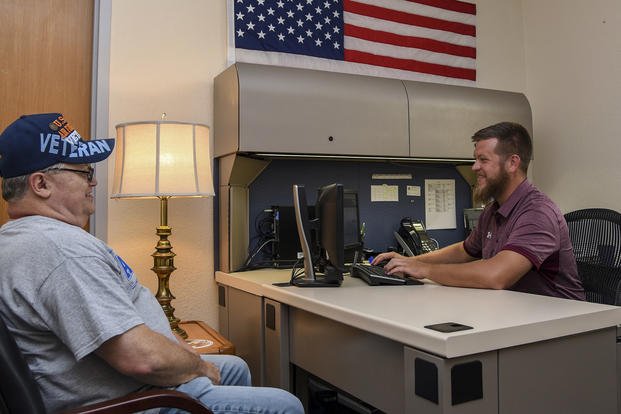Despite an outpouring of support from private and public organizations, veteran unemployment still remains high.
According to Time, post-9/11 veterans experienced a 7.2% unemployment rate in October 2014 versus a national 5.8% rate and a general veteran unemployment rate of 4.5%. A recent study from Mark Duggan, an economics professor at Stanford University, suggests that the dramatic increase in Department of Veterans Affairs (VA) disability compensation may be partly to blame. But many argue that the increase shouldn't be seen as a setback.
According to Duggan's report, the increase in VA disability compensation is substantial. In 2001, 8.9% of veterans were receiving support. Currently, 18% of veterans are benefiting from compensation. Although the number of veterans has fallen from 26.1 million in 2001 to 2.3 million in 2014, the increase goes to a significant 3.9 million in 2014 from 2.3 million in 2001.
In the report, Duggan describes this upswing in disability compensation as a contributor to veteran unemployment. He argues that veterans lose "propensity to work because -- with the additional income -- [they] may now prefer additional leisure to work." Furthermore, landing a job may "prevent a veteran from qualifying for a higher level of disability compensation benefits -- and thus increase the effective tax rate on work," said Duggan.
Although Duggan's conclusion that an increase in availability of benefits leads to a decrease in employed veterans, there are many who refute the idea that this is a problem. Forbes contributor Tim Worstall writes that "the alleviation of human misery was worth doing it anyway." Worstall does not argue against Duggan's data, but he does contend that it's not an inherent problem, and the situation should be further analyzed.
"We do want to be mindful of such effects, to measure them and acknowledge them," Worstall says. "For only then can we measure those undesirable effects against the desirable ones of people actually having more money and thus misery being alleviated."
Those who agree with Duggan, however, argue that the effects are as clear as they are negative. Sally Satel, a former VA psychiatrist, says that the study "is important because it shows how the good intentions of the disability system can sabotage the well-being of veterans." She goes on to say that there's nothing inherently wrong with receiving disability benefits, but the VA should place a higher priority on its health-care system "to maximize entry into the workforce and minimize exit from it."
While it makes intuitive sense that focusing on healing veterans over providing increased disability would provide a longer-term fix, opponents say that this view is limited. For example, Elspeth Ritchie, a retired Army colonel who served as a psychiatrist, thinks that the report doesn't take into account veterans who aren't so easily healed. "It does not seem to factor in the high rate of physical injuries, traumatic brain injury and PTSD in the veterans from these conflicts," she says.
Regardless of which side experts fall on, they tend to agree that more research needs to be done. While the correlation is fairly clear, solutions to the problem are not.
How do you feel about Duggan's report? Do you believe increasing VA disability benefits hurts a veteran's ability to reenter the workplace?
Want to Know More About the Military?
Be sure to get the latest news about the U.S. military, as well as critical info about how to join and all the benefits of service. Subscribe to Military.com and receive customized updates delivered straight to your inbox.











